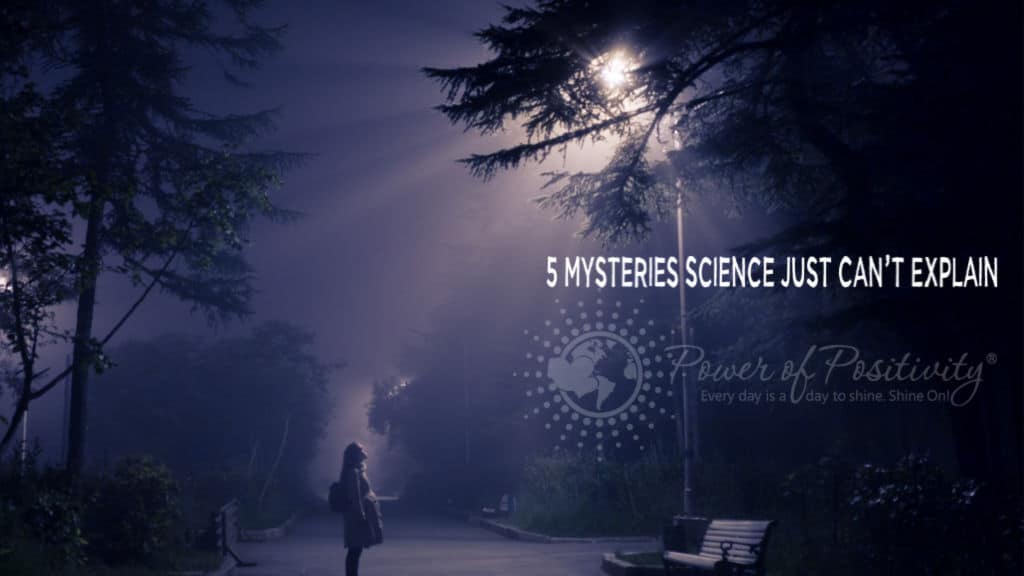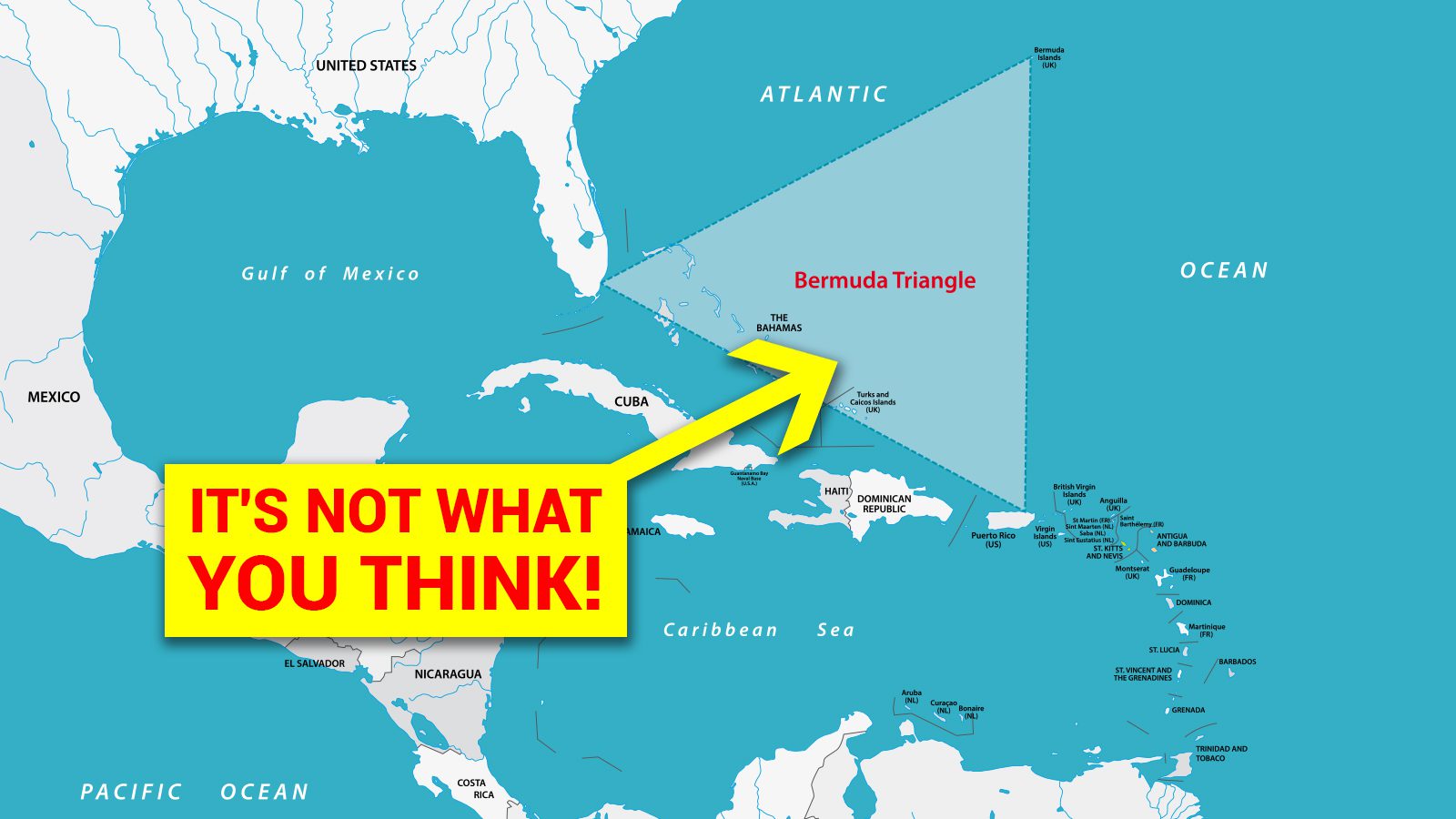Here’s a well-deserved nod to science. Scientific advances have improved every notable aspect of human existence. Of course, these range from our health and lifespan to air travel to the 5-inch computers we can fit in our pocket.
“The most beautiful thing we can experience is the Mysterious.” – Albert Einstein
But, as incredible as science is – and despite all the leaps forward – there are some things that science just can’t explain. Will science eventually be able to explain everything? Maybe. But for now, scientists worldwide remain genuinely puzzled about seemingly inexplicable phenomena.
In this article, we will talk about the five biggest mysteries facing science today. However, let’s start with a tip of our collective caps to the scientists, engineers, and inventors who made some incredible advances.
A Brief History of Science
So, as part of the nod to science, here are some important scientific and technological advances to date:
Date (or approximate) |
Invention/Discovery |
Paved the way for…. |
| 10 million years ago | Humans make first tools | Tools and machines |
| 1-2 million years ago | Humans discover fire | Fuel, candles, engines |
| 10,000 BCE | Construction of first ships | Boats, ships, sea craft
|
| 8000-9000 BCE | Development of agriculture and construction techniques | Buildings, aquafers, biofuels, housing
|
| 3500 BCE | The wheel is invented | Wheels and axles |
| 3000 BCE | Development of first writing tools | Pens, typewriters |
| 2500 BCE | Production of early versions of paper (papyrus) | Paper |
| 2000 BCE | Development of early lifting devices | Elevators, escalators |
| 1000 BCE | The ‘Iron Age’ | Iron and steel |
| c. 150-100 BCE | Development of precision, gear-driven clockwork machines | Clockwork |
| c. 50 BCE | Design of the water wheel (turbine) | Turbines |
| 62 CE | Development of steam power | Steam engines |
| 700-900 CE | The invention of gunpowder and fireworks | Ammunition, fireworks, detonation devices |
| 1200 | The invention of a flushing device | Toilets |
| 1450 | Gutenberg develops the printing press | Printing |
| 1590 | The first microscope is invented | Microscopes, electron microscopes |
| 1687 | Newton develops laws of motion | Motion, gravity |
| 1703 | Gottfried Leibniz pioneers the first binary number system | Computer programming |
| 1730s-1770s | Development of chronometers | Satellite navigation, quartz clocks, and watches |
| 1814 | George Stephenson engineers the first steam locomotive | Steam engines |
| 1830s | William Sturgeon develops the first electric motor | Electric motors |
| 1840s | Development of the electric telegraph | Telegraph machines, telephones |
| 1839 | Charles Goodyear develops a durable firm of rubber (vulcanized rubber) | Rubber, car tires |
| 1850s | Louis Pasteur develops pasteurization – a method of heating and killing bacteria | Pasteurization |
| 1860s | Pioneering of the internal combustion engine by Etienne Lenoir and Nikolaus Otto | Car engines |
| 1870s | Edison invents the phonograph | Record players, sound |
| 1880s | Edison patents the incandescent electric lamp | Lamps |
| 1890s | Louis and Joseph Lumiere patent movie projectors and open the first movie theatres | Projection machines, cinema |
1900s |
The first radio wave signals are transmitted from across the Atlantic Ocean | Radio |
| 1908 | Henry Ford launches the Ford Model T | Automobiles, auto manufacturing |
| 1920s | Development of electronic television | Television |
| 1930s | Robert Watson Watt leads the development of radar | Radar |
| 1940s | The mass productions of penicillin; development of the first transistors | Genetics, genetic research |
| 1950s | Jonas Silk develops and tests first polio vaccine | Pharmacological research, aversion of disability |
| 1960s | Development of ARPANET, the predecessor of the internet | Internet conception |
| 1970s | Voyager Program | Solar System exploration |
| 1980s | Tim Berners-Lee creates World Wide Web | Internet infrastructure |
| 1990s | Mapping of the human genome | Genetic research, disease research, and prevention |
| 2000s | Stem cell research and programming | Disease prevention, disease, and disability research |
| 2010s | IBM creates chips that mimic human brains | Deep learning |
By no means is this a comprehensive list. However, it shows us the inventiveness and intelligence of scientists.
Now, what hasn’t science been able to explain (yet)? Let’s go!
Mysteries that Science Can’t Explain
1 – Dark matter
Even the famed astrophysicist and genius Neil deGrasse Tyson has difficulty explaining dark matter. “Dark matter…I gotta ask what it is, and my best answer is ‘We haven’t a clue (laughs)’…We don’t know what it is.”
Tyson also notes that 85 percent of the Universe comes from the unknown source that is dark matter.
“We add up all the stars, galaxies, planets, comets, black holes, dark clouds, everything that we can (sense), and it doesn’t add up to give us the gravity that we see operating in this universe.”
So, what is dark matter? It’s a “hypothetical form of matter” that, as deGrasse Tyson states, is the “greatest unsolved mystery in the history of astrophysics.” The only thing that science proves is that this dark matter produces gravitational effects that impact galaxies and star clusters.
2 – Sleep
Why do we sleep? “It’s because we’re tired, duh!” Fair enough and, indeed, correct! If only science were that simple!
But what scientists are referring to is this: the need to sleep when you’re tired. In other words, why can’t you feel as tired as you want and stay awake? It’s probably accurate to say that most people would do exactly that if they could. Sleeping takes a big chunk out of our modest 70 to 80-year average lifespan.
Theories abound, of course. Jerry Siegel, a professor of psychiatry at UCLA in Los Angeles, California, explains his hypothesis: “Across species, energy savings is the main evolutionary impulse for sleep.” In the wild, animals that expend their energy quickly are more likely to perish. Well, if nature has taught us anything, it’s that human beings possess an innate and powerful survival mechanism. And, that’s a true fact among other species, also.
3 – Consciousness
Attempting to explain consciousness is akin to trying to sprint across an ice skating rink. We know we’re alive; we know that we exist, right? Right?
For all the advances in science, experts who research that the brain cannot state with any confidence that the brain causes consciousness. In fact, there is a multitude of evidence that points to consciousness existing, at least in part, outside of the brain.
Not only is the subject of consciousness perplexing. Also, it can get just plain weird. Russell Targ, a laser physicist by trade, was tasked by the U.S. intelligence community, including the CIA, Army Intelligence, Defense Intelligence Agency (DIA), and NASA to conduct research into remote viewing, the “practice of seeking impressions about a distant or unseen target” using extrasensory perception (ESP).
Targ and his partner, Harold Puthoff of Stanford Research Institute (SRI) successfully conducted remote spying operations for over 20 years. Targ and Puthoff’s research is published in numerous prestigious journals, including the Institute of Electrical and Electronics Engineers (IEEE).
How is one able to “sense” to “see” something without physically being present? Such a phenomenon is only explainable if awareness – an element of consciousness – exists somewhere outside of the body. “My opinion is that who you are is non-local awareness independent of space and time,” says Targ.
4 – Origin of the universe
Humans have been asking “Where did we come from?” since the beginning of time. As technology continues to evolve, demand for answers to this question is becoming increasingly vociferous.
The “Big Bang” theory is science’s answer to the question, though the theory leaves much to be desired for some. In simple terms, the Big Bang Theory proposes that the Universe began at a single moment in time and from one point. Eventually, it expanded to the Universe that we “know” today. Most scientists believe that the Universe evolved from a singularity – a “very hot, small, and dense super-force, with no stars, atoms, forms or structures.”
Unfortunately, the Big Bang Theory may never be proven. Then there’s the question, “Where did the ‘singularity’ come from?” But, for now, our collective head hurts.
5 – Intelligent Life (UFOs)
“E.T. phone home.”
With these words, our civilization’s interest in living forms that exist outside of our curious eyeballs reached its peak. Sadly, no Reese’s-Pieces-loving alien that misses home has been discovered.
That’s not to say that there haven’t been sightings. There’ve been plenty. Even some government spacecraft (read: astronauts) and pilots on top-secret excursions have seen weird things fly across the sky. Then there’s Area 51, but we don’t have all day.
We simply do not have any evidence of intelligent life outside of humans. Moreover, it seems that we need proof of everything nowadays. However, there may be a teensy-weensy problem with the whole “proof” thing.
The SETI Institute, which has been watching for alien activity for decades, uses high-powered, state-of-the-art technology in their mission.
The potential problem? Well, all the expensive observation equipment is designed for use by humans. In other words, humans have created it using what humans understand concerning the universe’s properties (e.g. physics). Any observation must be perceived through human senses and validated using human judgment. The problem? Well, the hypothetical aliens aren’t human!
If intelligent life exists, it’s probably a different species altogether. Such a hypothetical species may have different senses, technology, and means of observation and validation. If it’s an interplanetary species, their technology is probably light-years (pun intended) beyond ours. May be time to rethink our approach. Just sayin’.
The Future of Science
In short, we do not understand many things at this point in human development. Of course, who knows what tomorrow may bring? In the meantime, not understanding some of these things should not cause us to fear or worry. We can ponder. We can wonder. And we can even have some crazy theories and interesting discussions about the possibilities. So, embrace the truth that we don’t know everything. However, that fact should not keep us from living positive, full lives.















 Community
Community

